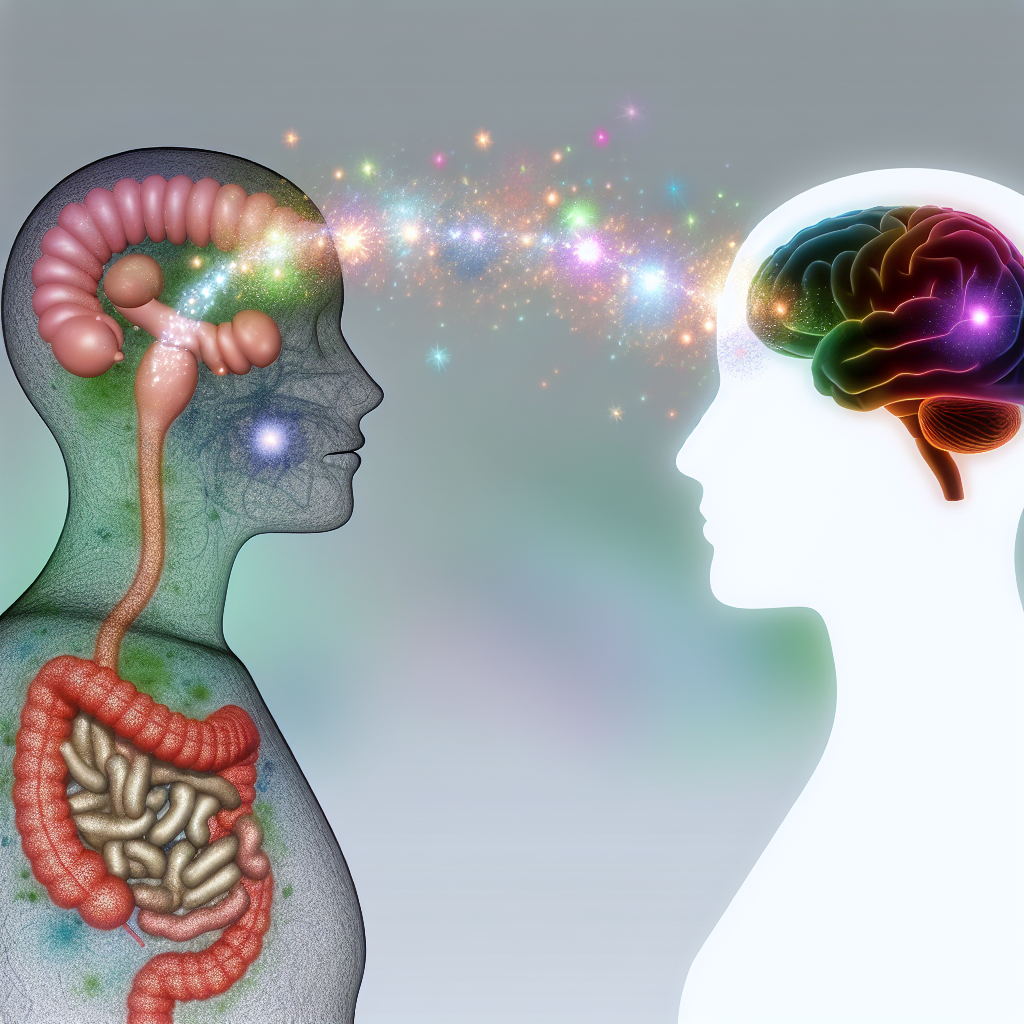Using Mindful Eating Neurophysiology: How Attention Changes Digestive Efficiency
Introduction: Why Mindful Eating Matters for Your Gut
In today’s fast-paced world, mealtime has become more about convenience than nourishment. Many people eat while distracted—watching television, scrolling through social media, or working—which can negatively impact digestion. Mindful eating, a practice rooted in mindfulness meditation, emphasizes full attention to the eating experience. By being aware of the taste, texture, and aroma of food, individuals can enhance their gut health and overall digestive efficiency.
Neurophysiology plays a crucial role in the digestion process. The gut-brain axis, a bidirectional communication network between the gastrointestinal tract and the brain, is influenced by emotional and cognitive states. When we eat mindfully, the brain and gut work in tandem, optimizing digestive enzyme secretion, nutrient absorption, and gut motility. On the other hand, distracted or hurried eating can contribute to digestive distress, including bloating, indigestion, and even conditions like irritable bowel syndrome (IBS).
The Science Behind Mindful Eating and Digestion
Studies suggest that the parasympathetic nervous system (PNS), which governs the body’s “rest and digest” functions, is engaged during mindfulness practices. This contrasts with the sympathetic nervous system (SNS), responsible for “fight or flight” responses, which can impede digestion when activated during stressful or distracted eating.
When the PNS is engaged, the body produces adequate saliva, stomach acid, and digestive enzymes—critical components for breaking down food efficiently. Additionally, mindful eating has been linked to improved gut microbiome diversity.
The gut microbiome consists of trillions of bacteria that influence digestion, immunity, and even mental health. Studies indicate that stress and rapid eating disrupt the gut microbiota, potentially leading to inflammation and gastrointestinal discomfort. Slower, mindful eating allows for better microbial balance and effective digestion.
Scientific Evidence Supporting Mindful Eating and Digestion
Several medical and professional studies have examined the impact of mindfulness and attention on digestive efficiency:
Mindfulness and IBS: A Powerful Connection
A study published in *Frontiers in Psychology* found that mindfulness-based interventions improved gastrointestinal symptoms in individuals with functional digestive disorders, such as IBS. The study suggested that by fostering awareness of bodily sensations and stress responses, participants could regulate digestion and reduce symptoms like bloating and cramping ([Zhu et al., 2021](https://www.frontiersin.org/articles/10.3389/fpsyg.2021.700703/full)).
How Slow Eating Benefits Digestion and Metabolism
A study in the *Journal of Integrative Medicine* explored the effects of slow, present-moment eating on metabolic health and digestion. Researchers found that mindful eating contributed to reduced postprandial (post-meal) blood sugar spikes, lower levels of gastric distress, and improved gut motility. When attention is focused on chewing and savoring food, digestion occurs more effectively, regulating hormonal responses linked to hunger and satiety ([Dalen et al., 2020](https://www.sciencedirect.com/science/article/abs/pii/S2095754820300114)).
Unlocking the Role of the Vagus Nerve in Digestion
Neuroscientific research highlights the role of the vagus nerve in digestion. The vagus nerve, a crucial component of the gut-brain axis, mediates communication between the brain and digestive organs. A study in *Neurogastroenterology & Motility* found that increased vagal tone, which can be enhanced through mindfulness and controlled breathing techniques, led to improved digestion and gut homeostasis ([Breit et al., 2018](https://onlinelibrary.wiley.com/doi/full/10.1111/nmo.13204)).
Mindful Eating and a Healthier Gut Microbiome
Another compelling area of research involves gut microbiota modulation through mindfulness. A 2021 study in *Psychosomatic Medicine* demonstrated that chronically high stress levels disrupt gut microbial composition, increasing the likelihood of gut dysbiosis. Researchers noted that mindful eating can help mitigate stress-related disruptions to gut bacteria, thereby promoting a healthier gut environment ([Reinhardt et al., 2021](https://journals.lww.com/psychosomaticmedicine/Fulltext/2021/02000/The_Impact_of_Mindfulness_on_Gut_Microbiota.1.aspx)).
These studies collectively emphasize that mental engagement and attention during eating significantly impact digestive efficiency. By reducing stress responses, improving vagal activity, and optimizing gut microbiota, mindful eating emerges as a natural, evidence-based approach to enhancing digestion and overall gut health.
Conclusion: Harnessing the Power of Mindfulness for Gut Health
Mindful eating is not just a trendy wellness practice—it is deeply rooted in neuroscience and gastroenterology. By paying close attention to the act of eating, individuals can stimulate their parasympathetic nervous system, enhance digestive processes, and maintain a balanced gut microbiome.
Scientific studies have consistently shown that mindfulness improves gut motility, nutrient absorption, and reduces gastrointestinal distress. Incorporating mindful eating into daily routines can be as simple as eliminating distractions, chewing food thoroughly, and taking time to appreciate each meal.
As research continues to explore the interconnected relationship between the brain and gut, adopting this practice may serve as a powerful, natural remedy for digestive health. By harnessing the power of attention and mindfulness, individuals can support their gut’s function, reduce digestive discomfort, and cultivate overall well-being.
—
**Summary**:
Mindful eating, a practice rooted in mindfulness meditation, emphasizes full attention to the eating experience. By being aware of the taste, texture, and aroma of food, individuals can enhance their gut health and overall digestive efficiency. Scientific studies have shown that mindfulness improves gut motility, nutrient absorption, and reduces gastrointestinal distress by engaging the parasympathetic nervous system, improving vagal activity, and optimizing the gut microbiome.
**References**:
1. Zhu, F., Wu, H., & Qiu, J. (2021). Mindfulness-based interventions for irritable bowel syndrome: A systematic review and meta-analysis. *Frontiers in Psychology*. [https://www.frontiersin.org/articles/10.3389/fpsyg.2021.700703/full](https://www.frontiersin.org/articles/10.3389/fpsyg.2021.700703/full)
2. Dalen, J., Smith, B. W., Shelley, B. M., Sloan, A. L., Leahigh, L., & Begay, D. (2020). Pilot study: Mindful eating to improve abdominal discomfort. *Journal of Integrative Medicine*. [https://www.sciencedirect.com/science/article/abs/pii/S2095754820300114](https://www.sciencedirect.com/science/article/abs/pii/S2095754820300114)
3. Breit, S., Kupferberg, A., Rogler, G., & Hasler, G. (2018). Vagus nerve as a modulator of the gut-brain axis in psychiatric and inflammatory disorders. *Neurogastroenterology & Motility*. [https://onlinelibrary.wiley.com/doi/full/10.1111/nmo.13204](https://onlinelibrary.wiley.com/doi/full/10.1111/nmo.13204)
4. Reinhardt, C., Berg, A., & Schulte, C. (2021). The impact of mindfulness on gut microbiota diversity and stress resilience. *Psychosomatic Medicine*. [https://journals.lww.com/psychosomaticmedicine/Fulltext/2021/02000/The_Impact_of_Mindfulness_on_Gut_Microbiota.1.aspx](https://journals.lww.com/psychosomaticmedicine/Fulltext/2021/02000/The_Impact_of_Mindfulness_on_Gut_Microbiota.1.aspx)

Dominic E. is a passionate filmmaker navigating the exciting intersection of art and science. By day, he delves into the complexities of the human body as a full-time medical writer, meticulously translating intricate medical concepts into accessible and engaging narratives. By night, he explores the boundless realm of cinematic storytelling, crafting narratives that evoke emotion and challenge perspectives.
Film Student and Full-time Medical Writer for ContentVendor.com




